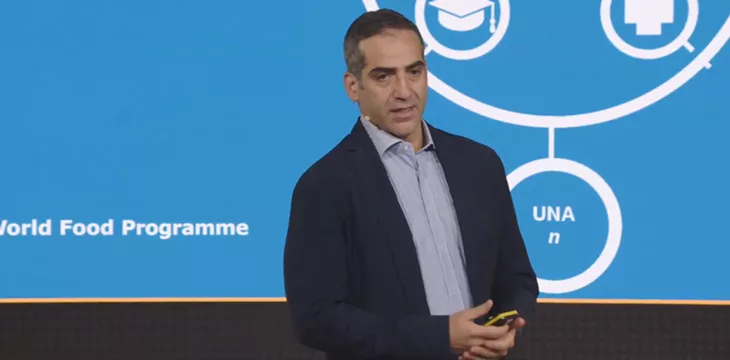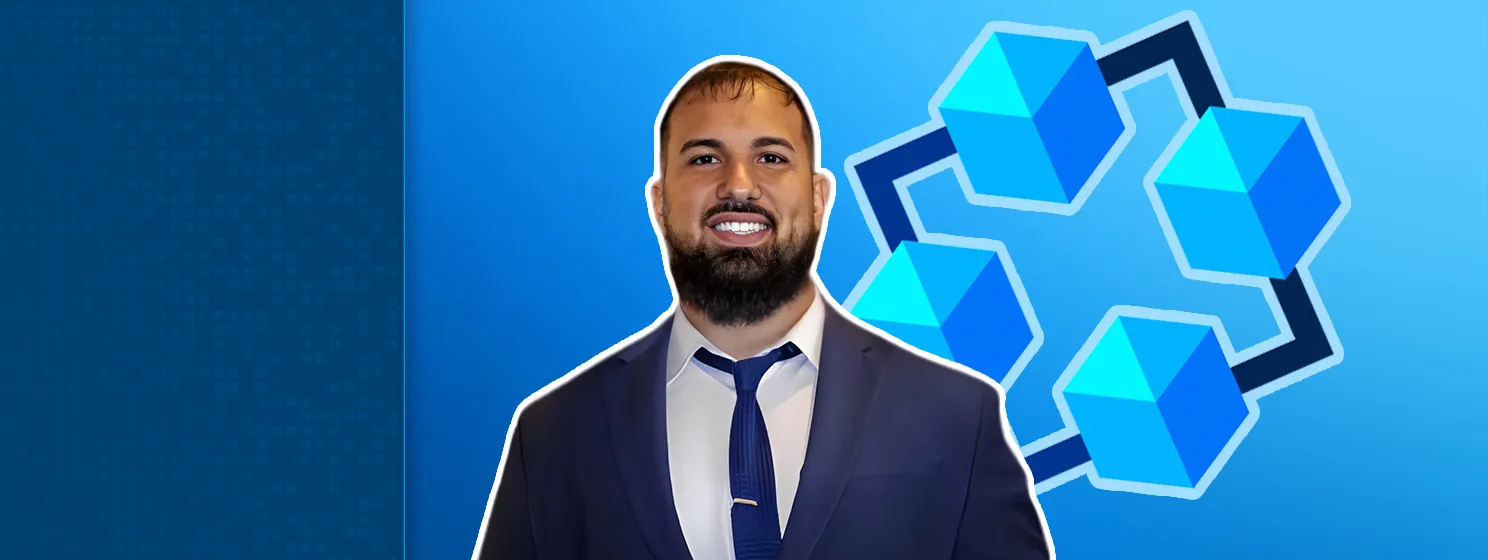|
Getting your Trinity Audio player ready...
|
Day 3 of the London Blockchain Conference 2023 (LBC 2023) kicked off on an optimistic note, with a morning talk by the Head of Emerging Technologies at the United Nations World Food Program (WFP), Houman Haddad, who outlined a real-world humanitarian application of the blockchain that is making a positive difference: “Building Blocks.”
There are few causes more worthy than combating famine, hunger, and global inequality. On the last day of LBC 2023, the crowd at the business strategy stage seemed pleased to hear that the technology they’d all come to the QEII center could be used for humanitarian purposes.
Speaker Houman Haddad is the Head of Emerging Technologies at the United Nations WFP and the founder of WFP’s “Building Blocks” (BB) project, which seeks to harness the power of blockchain to foster interagency collaboration and create efficiencies.
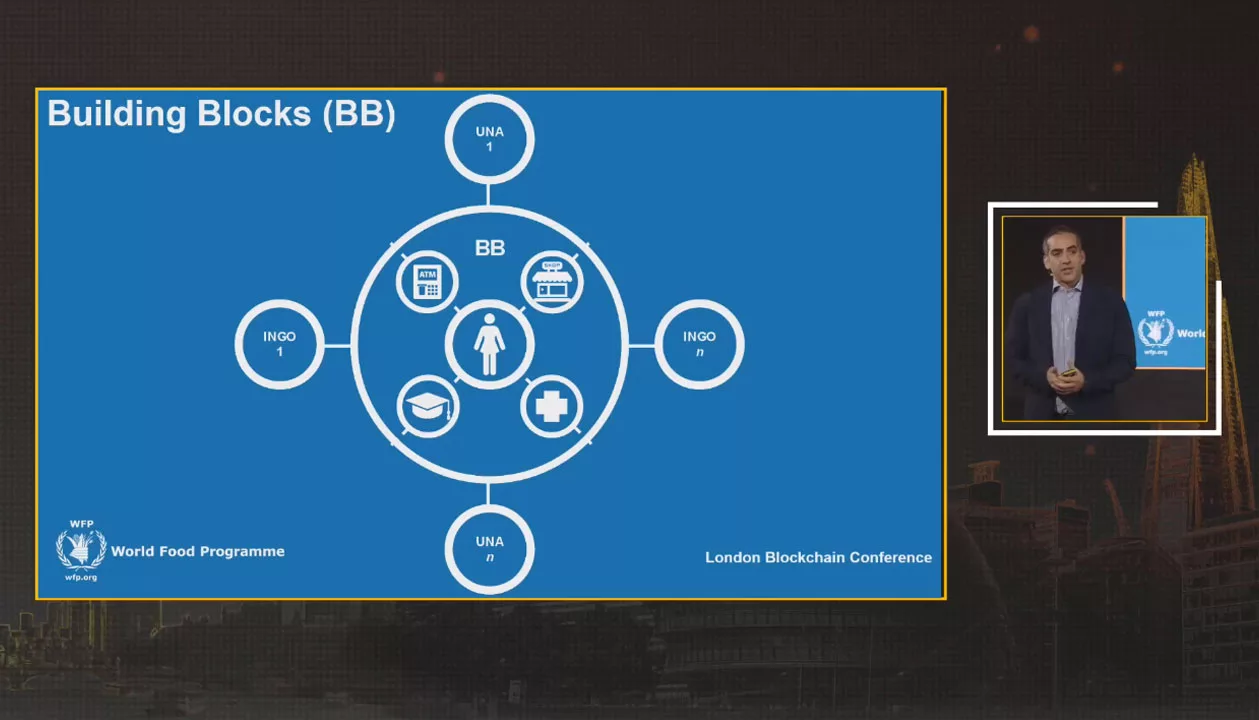
“Building Blocks is a value transfer system that can be used by multiple humanitarian organizations and people seeking assistance to better coordinate and record the transfer of cash to where it’s needed,” Haddad explained.
It is currently the world’s largest implementation of blockchain technology for humanitarian assistance. Building Blocks’ goal is to harmonize humanitarian efforts, empower individuals, and optimize assistance distribution; it does this by utilizing the transparency and efficiency of blockchain technology to create fairer outcomes and seamless access for those facing adversity.
“Since 2009 and 2010, there’s been a shift from in-kind (products such as rice, grain, etc.) to cash-based humanitarian structures,” Haddad said. “This adds an element of dignity, its more cost-effective and can create a multiplier effect, putting more money into the local economy.”
Of course, cash-based humanitarianism comes with its own set of considerations, such as the risks of inflation when putting money into an economy, monitoring if it is being spent effectively, and so on.
Despite this, the cash-based system of assistance has grown exponentially since 2009, and with it, the need for coordination of the cash process has also increased.
This has created what Haddad called a “system war”—the systems being multiple competing, or uncoordinated, organizations attempting to do the same work, often leading to a less fair or well-organized distribution of assistance.
To address this, in 2016, Haddad and his colleagues at the WFP created ‘Building Blocks’ to overcome some of these systems’ challenges through the use of blockchain technology.
In essence, Building Blocks function as a connection of 12 smart contracts, the wallet itself also being a smart contract. But Haddad was keen to emphasize that due to the nature of blockchain, it is not owned by WFP or any organization or group of individuals.
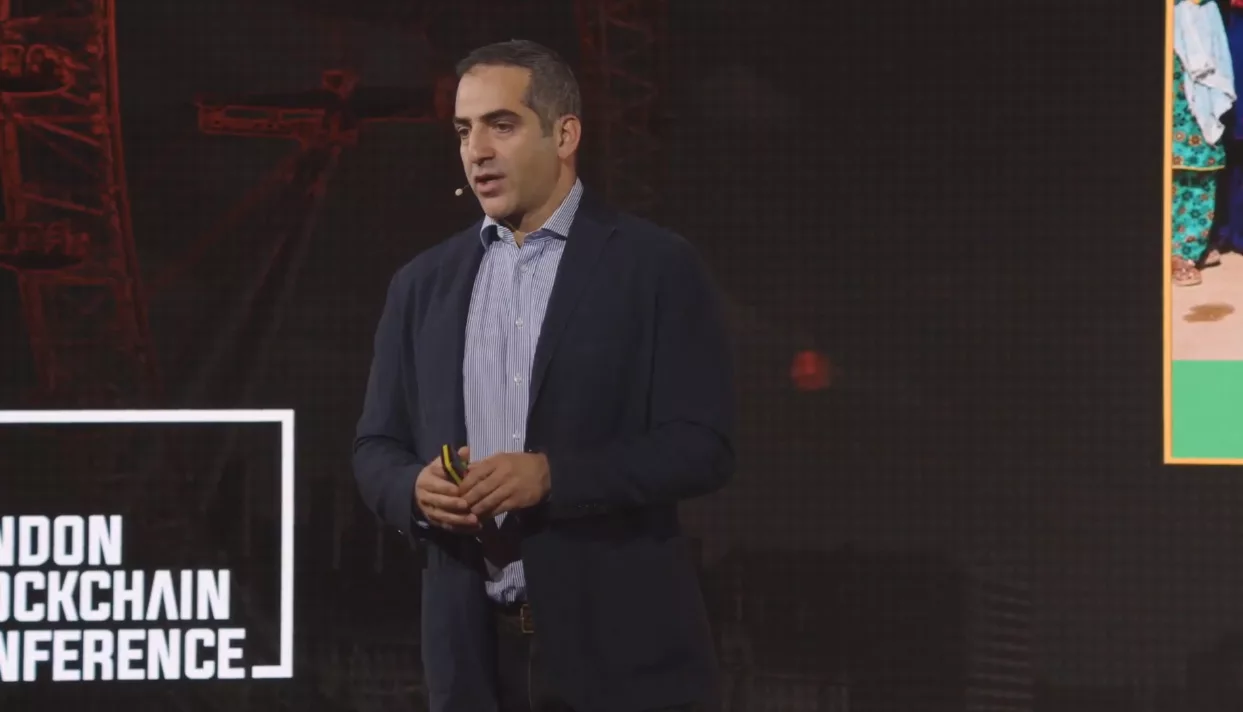
“It is a co-owned network that grows visibility with the people we serve, and the people who need assistance can request it when needed,” he explained.
Haddad stated, from his extensive experience working in the humanitarian field, that the application “improves fair distribution.” But the proof is in the pudding, and he provided some promising stats to support this assertion.
Since it began operating in 2017, in a trial situation in Pakistan, Building Blocks now serves 4 million people every month; USD$500 million has been transferred to where it’s needed; and USD$100 million of duplication has been prevented—duplication is shorthand for “unintended system overlap,” where assistance ends up pooled in certain places due to a lack of coordination from humanitarian organizations, instead of being spread and shared appropriately.
Another benefit of the Building Blocks application is that it’s completely free to humanitarian organizations.
These are extremely positive signs of a real-world use case for blockchain in the humanitarian field, showing how the technology can be applied to loftier goals than creating more wealth for the wealthy.
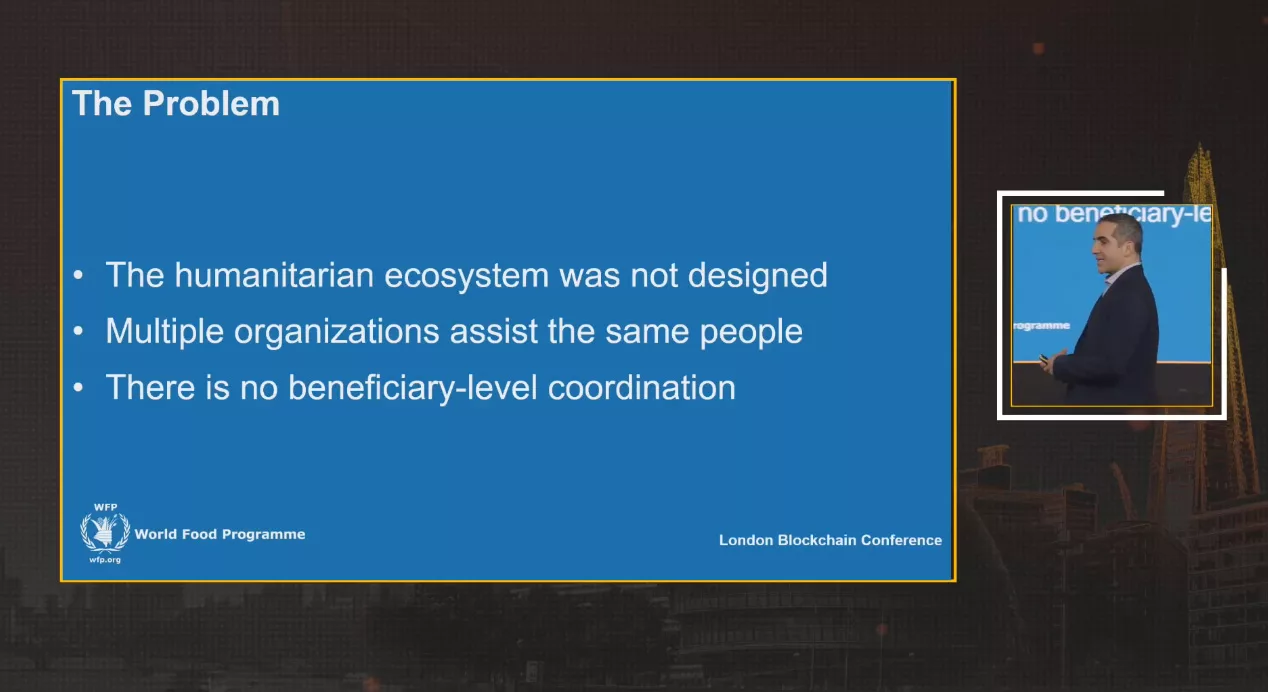
Haddad admitted that there are still hurdles to overcome, one being that “the technology is considered first world.” Meaning to properly utilize it, you need smart phones, internet, knowledge of how to use a wallet, etc. This can, and has, been overcome through education and the supply of equipment, and can also be circumvented by utilizing trusted partners to maintain the wallet for those who don’t have access. But it is still not an ideal system, more a work in progress showing positive signs and results.
In terms of where the technology could go, Haddad raised the exciting possibilities it could offer in the refugee realm, where people are forced to travel from place to place, sometimes for up to 15 years. During this time, they can lose access to their identity and money.
“Digital ID could really help refugees,” suggested Haddad, and the ability to access aid wherever there is internet, could also be a game changer.
Whether this will come to fruition, we can only hope, but the warm reaction Haddad’s talk and project received from the crowd at least suggests there is a real desire amongst advocates and supporters of blockchain technology for it to provide a global, social good, as much as a financial one.
Watch: CoinGeek TV with Kurt Wuckert Jr. at the London Blockchain Conference 2023 – Day 1

 07-18-2025
07-18-2025 
